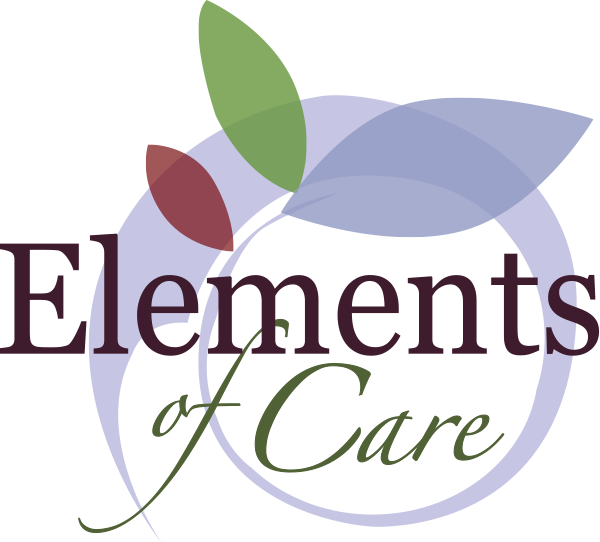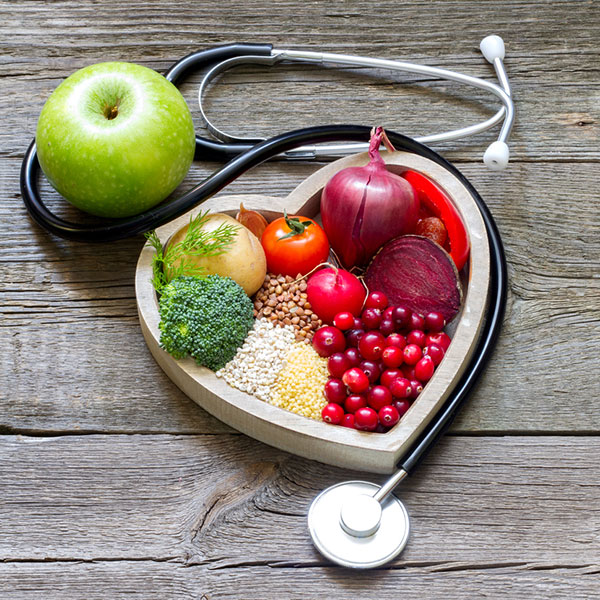Healthy eating in pregnancy, and enough of it, is very important for your baby to grow and develop. During the second and third trimesters, you should consume 200 to 300 more calories than you did before you became pregnant. Think of this as an extra snack you eat sometime during the day.
Example snacks could be 8 ounces of skim milk and half a peanut butter sandwich, a banana and peanut butter, 1 cup of cottage cheese and strawberries, ½ cup of dried fruit and nuts, an avocado and crackers, a hard-boiled egg and crackers, small baked potatoes with yogurt, or hummus and veggies.
Although nausea and vomiting during the first few months of pregnancy can make this difficult, try to eat a well-balanced diet and take prenatal vitamins. Here are some recommendations to keep you and your baby healthy.
Goals for Healthy Eating
Choose foods high in starch and fiber such as whole-grain breads, cereals, pasta, rice, fruits and vegetables.Eat a variety of foods to get all the nutrients you need. Recommended daily servings: 6-11 servings of breads and grains, 2-4 servings of fruit, 4 or more servings of vegetables, 4 servings of dairy products, and 3 servings of protein sources (meat, poultry, fish, eggs or nuts). Use fats and sweets sparingly.
Make sure you are getting enough vitamins and minerals in your daily diet. You should take a prenatal vitamin supplements to make sure you are consistently getting enough vitamins and minerals every day. Your doctor can recommend an over-the-counter brand or prescribe a prenatal vitamin for you.
Eat and drink at least 4 servings of dairy products and calcium-rich foods a day to help ensure that you are getting 1200mg of calcium in your daily diet.
Eat at least three servings of iron-rich foods per day to ensure you are getting 30mg of iron in your daily diet.
Choose at least one good source of vitamin C every day, which include: oranges, grapefruits, strawberries, honeydew, broccoli, cauliflower, Brussel sprouts, green peppers, tomatoes and mustard greens.
Choose at least one good source of folic acid every day, which include: dark green leafy vegetables, veal and legumes (lima beans, black beans, black-eyed peas and chickpeas). Every pregnant woman needs 0.4mg of folic acid per day to help prevent neural tube defects such as spina bifida.
Choose at least one source of vitamin A every other day. Sources of vitamin A include carrots, pumpkins, sweet potatoes, spinach, water squash, turnip greens, beet greens, apricots and cantaloupe.
Are There Foods I Should Avoid?
Limit caffeine to no more than 300mg per day (two five-ounce cups of coffee, three five-ounce cups of tea or two 12-ounce glasses of caffeinated soda). Remember, chocolate contains caffeine – the amount of caffeine in a chocolate bar is equal to ¼ cup of coffee.
The use of saccharin is strongly discouraged during pregnancy because it can cross the placenta and may remain in fetal tissues. But, the use of non-nutritive or artificial sweeteners approved by the FDA is acceptable during pregnancy. These FDA-approved sweeteners include aspartame, acesulfame-K, and sucralose. Talk with your health care provider about how much non-nutritive sweetener is acceptable during pregnancy.
Decrease the total amount of fat you eat to 30% or less of your total daily calories. For a person eating 2000 calories a day, this would be 65 grams of fat or less per day.
Do not eat shark, swordfish, king mackerel, or tilefish, because they contain high levels of mercury.
You may eat up to 12 ounces (2 average meals) per week of a variety of fish and shellfish that are lower in mercury. Examples of fish low in mercury are shrimp, canned light tuna, salmon, Pollock, and catfish. You may eat up to 6 ounces of albacore (“white”) tuna per week as this has more mercury than the canned light tuna.
Avoid soft cheeses such as feta, brie, camembert, blue-veined, and Mexican-style cheese. These cheeses are often unpasteurized and may cause Listeria infection. Hard cheese, processed cheese, cream cheese, cottage cheese, or yogurt need not be avoided.
Can I Diet While I am Pregnant?
No. Do not diet or try to lose weight during pregnancy – both you and your baby need the proper nutrients in order to be healthy. Keep in mind that you will lose some weight the first week your baby is born.
Can I Maintain My Vegetarian Diet While Pregnant?
Just because you are pregnant doesn’t mean you have to diverge from you vegetarian diet. Your baby can receive all the nutrition he or she needs to grow and develop while you follow a vegetarian diet if you make sure that you eat a wide variety of healthy foods that provide enough protein and calories for you and your baby.
Depending on the type of vegetarian meal plan you follow, you may need to adjust your eating habits to ensure that you and your baby are receiving adequate nutrition (you should consume 200 to 300 more calories than you did before you became pregnant).
How Much Calcium Should I Consume During Pregnancy?
The following guidelines will help ensure that you are consuming enough calcium throughout your pregnancy:
- The U.S. Recommended Daily Allowance (USRDA) for calcium is 1200mg per day for pregnant and lactating (breastfeeding) women over age 24. The USRDA for women under age 24 is 1200 to 1500mg of calcium per day.
- Eating and drinking at least four serving of dairy products and calcium-rich foods a day will help insure that you are getting 1200mg of calcium in your daily diet.
- The best sources of calcium are dairy products including milk, cheese, yogurt, cream soups and pudding. Calcium is also found in foods including green vegetables (broccoli, spinach and greens), seafood, dried peas and beans.
- Vitamin D will help your body use calcium. Adequate amounts of vitamin D can be obtained through exposure to the sun and in fortified milk, eggs and fish.
Should I Take a Calcium Supplement?
If you have trouble consuming enough calcium-rich foods in your daily meal plan, talk to your doctor of dietitian about taking a calcium supplement. The amount of calcium you will need from a supplement depends on how much calcium you are consuming through food sources. Calcium supplements and some antacids containing calcium, such as Tums, may complement an already healthy diet. Many multiple vitamin supplements contain little or no calcium; therefore you will need an additional calcium supplement.
How Much Iron Should I Consume?
Following a balanced diet and including foods high in iron can help ensure that you are consuming enough iron throughout your pregnancy. In addition, the following guidelines will help:
- The USRDA for iron is 30mg per day for pregnant and lactating women.
- Eating at least three servings of iron-rich foods a day will help ensure that you are getting 30mg of iron in your daily diet. One of the best ways to get iron from your diet is to consume a highly fortified breakfast cereal such as Total, which has 18mg of iron. Note that iron intake is not equal to iron absorption. Absorption of iron into the body is greatest with meat sources of iron such as liver.
- The best sources of iron include enriched grain products; lean meat, poultry and fish; and leafy green vegetables.
What Are Good Sources of Iron?
- Meat and Seafood: Lean beef, chicken, clams, crab, egg yolk, fish, lamb, liver, oysters, pork, sardines, shrimp, turkey, and veal.
- Vegetables: Black-eyed peas, broccoli, Brussel sprouts, collard and turnip greens, lima beans, sweet potatoes, and spinach.
- Legumes: Dry beans and peas, lentils, and soybeans.
- Fruits: All berries, apricots, dried fruits, including prunes, raisins and apricots, grapes, grapefruit, oranges, plums, prune juice, and watermelon.
- Breads and Cereals: Enriched rice and pasta, soft pretzel, and whole grain and enriched or fortified breads and cereals.
- Other Foods: Molasses, peanuts, pine nuts, pumpkin or squash seeds.
Other Facts About Iron
- Vitamin C helps body use iron. It is important to include sources of vitamin C along with foods containing iron and iron supplements.
- Caffeine can inhibit the absorption of iron. Try to consume iron supplements and foods high in iron at least one to three hours before or after drinking or eating foods containing caffeine.
- Iron is lost in cooking some foods. To retain iron, cook foods in a minimal amount of water and for the shortest possible time. Also, cooking in cast iron pots can add up to 80% more iron in foods.
- Constipation is a common side effect of taking iron supplements. To help relieve constipation, slowly increase the fiber in your diet by including whole grain breads, cereals, fruits and vegetables. Drinking at least 8 cups of fluids daily an increasing moderate exercise (as recommended by your doctor) can also help you avoid constipation.
What Should I Eat When I Don’t Feel Well?
During pregnancy you may have morning sickness, diarrhea or constipation. You may find it hard to keep foods down, or you may feel too sick to even eat at all. Here are some suggestions:
Morning sickness – eat crackers, cereal or pretzels before getting out of bed; eat small, frequent meals throughout the day: avoid fatty, fried and greasy foods.
Constipation – eat more fresh fruit and vegetables. Also drink 6 to 8 glasses of water a day.
Diarrhea – eat more foods that contain pectin and gums (two types of dietary fiber) to help absorb excess water. Examples of these foods are: applesauce, bananas, white rich, oatmeal, refined wheat bread and smooth peanut butter.
Heartburn – eat small, frequent meals throughout the day; try drinking milk before eating; and limit caffeinated foods and beverages.
Can I Eat a “Low Carb” Diet While I am Pregnant?
Low carbohydrate diets, such as Atkins and the South Beach Diet are very popular. There have been no studies of the effects of a low carbohydrate diet on pregnancy, so its effect on the fetus, if any, are unknown. While you are pregnant, you should eat a balanced diet from all of the food groups.
Why Do I Need More Calcium?
Calcium is a nutrient needed in the body to build strong teeth and bones. Calcium also allows blood to clot normally, muscles and nerves to function properly, and the heart to beat normally. Most of the calcium in your body is found inside of your bones.
Your growing baby needs a considerable amount of calcium to develop. If you do not consume enough calcium to sustain the needs of your developing baby, your body will take calcium from your bones, decreasing your bone mass and putting you at risk for osteoporosis. Osteoporosis causes dramatic thinning of the bone, resulting in weak, brittle bones that can easily be broken. Pregnancy is a critical time for a woman to consume more calcium. Even if no problems develop during pregnancy, an inadequate supply of calcium at this time can diminish bone strength and increase your risk of osteoporosis later in life.
How Can I Get Enough Calcium if I am Lactose Intolerant?
Lactose intolerance is the inability to digest lactose, the sugar found in milk. If you are lactose intolerant, you may have cramping, gas or diarrhea when dairy products are consumed. If you are lactose intolerant, you can still receive the calcium you need. Here are some suggestions:
- Try consuming small amounts of milk with meals. Milk may be better tolerated with food.
- You may be able to tolerate certain milk products that contain less sugar including cheese, yogurt and cottage cheese.
- Eat non-dairy calcium sources including greens, broccoli, sardines and tofu.
- Use Lactaid milk fortified with calcium. Talk to your dietitian about other lactose-reduced products.
Why Do I Need More Iron Now That I am Pregnant?
Iron is a mineral that makes up an important part of hemoglobin, the substance in blood that carries oxygen throughout the body. Iron also carries oxygen in muscles, helping them function properly. Iron helps increase your resistance to stress and disease.
The body absorbs iron more efficiently during pregnancy; therefore it is important to consume more iron while you are pregnant to ensure that you and your baby are getting enough oxygen. Iron will also help you avoid symptoms of tiredness, weakness, irritability and depression.
Should I Take an Iron Supplement?
Talk to your health care provider about an iron supplement. The National Academy of Sciences recommends that all pregnant women following a balanced diet take an iron supplement providing 30mg of iron during the second and third trimesters of pregnancy. Your doctor may increase this does if you become anemic. Iron deficiency anemia is a condition in which the size and number of red blood cells are reduced. This condition may result from inadequate intake of iron or from blood loss.
Are Food Cravings Normal During Pregnancy?
Yes. Although there is no widely accepted explanation for food cravings, almost two-thirds of all pregnant women have them. If you develop a sudden urge for a certain food, go ahead and indulge your craving if it provides energy or an essential nutrient. But, if your craving persist and prevents you from getting other essential nutrients in your diet, try to create more of a balance in your daily menu.
During pregnancy, your taste for certain foods may change. You may suddenly dislike foods you were fond of before you became pregnant. In addition, during pregnancy, some women feel strong urges to eat non-food items such as ice, laundry starch, dirt, clay, chalk, ashes or paint chips. This is called pica, and it may be associated with an iron deficiency such as anemia. Do not give into these non-food craving – they can be harmful to both you and your baby. Tell your health care provider if you have these non-food cravings.




